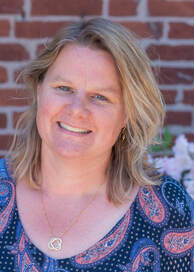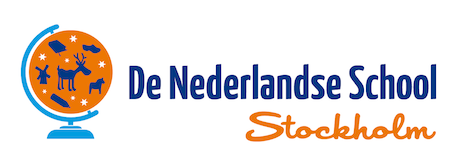
My husband Jos and I are both Dutch and we have lived overseas for over 17 years now, starting out in Sydney. We then briefly came back to Haarlem to renovate a house and get married thinking we would settle there, before another foreign adventure in Munich lured us back into expat life. Our two children were born there, after which we moved to London and now for the last three years we have lived in Stocksund, where we will stay for the foreseeable future. I have been the 'trailing spouse' as you call it for most of these years, so every new country we move to presents me with new challenges and opportunities to find a meaningful way to spend my time and contribute to my new community. Coming from a background in emergency assistance, I seem to seek out the role of organiser or problem solver mostly. Besides that, I enjoy bringing communities together, be it Dutch or international, so my activities have ranged from coordinating repatriations, to organising events, to being on a school intercultural advisory committee or on a Dutch school board at the present time.
What can The Dutch School offer children of expats and Dutch-Swedish families?
The Dutch School of Stockholm (De Nederlandse School Stockholm) exists now for 23 years and we currently employ 5 teachers that teach approximately 65 children aged 4 to 16 in 7 different groups during 3 afternoons each week in the locations of the BISS. We are a not-for-profit foundation with a voluntary board and are inspected by the Dutch inspector for education. Our population consists half of expats, so families of two Dutch parents that are here for a few years and then move on or return to the Netherlands. For these families the main objective is to keep up their Dutch language to a standard so that the children can easily return to an age-appropriate class upon return to the Netherlands.
We offer a high standard of education and have qualified teachers, up to date teaching methods, books and tests (CITO) to make this happen. The other half of our population consists of families that live here long term and mostly have 1 Swedish and 1 Dutch parent and for them it is more important to keep up the language so they can speak to their grandparents for instance, join in the Dutch cultural activities, or be able to study at a Dutch university later on.
Also for expat children like mine that have never lived in the Netherlands this is a consideration, because a Dutch university will not just accept them with a foreign secondary diploma. Proof of sufficient Dutch language comprehension and speech is necessary, which is why we offer the 4th year secondary school students the chance to sit for their CNaVT (Certificaat Nederlands als Vreemde Taal) exam. If they pass this, they get a certificate confirming their Dutch competency and this is accepted by most Dutch and Flemish universities. For the Swedish-based students this is also interesting, because the level at which we teach is of a higher level then Modersmål and this certificate is equivalent to an A mark in a foreign language. Many Swedish schools accept the certificate and a student may then be able to substitute this high mark for a lower one in another language and get more points that way.
What made you accept the challenge of chairing the board of The Dutch School?
As my kids were born in Germany and have never lived in the Netherlands or gone to school there, I find it very important for them to connect with other Dutch children and for our family to be part of a Dutch community, both from a language and a cultural perspective. After a Dutch preschool in Munich, we went to an international school in the UK where all kids got mother tongue lessons 5 hours per week during their normal school day. The school provided 14 different mother tongues, because their vision was that each child should first of all learn their mother tongue properly, in order to better learn any second or third language, which I strongly believe to be true. After leaving the UK we were lucky enough to end up here, where there was another great Dutch language school already in place. What better way to spend my time than to invest in my as well as other kids' language education, so I joined the board of volunteer parents, firstly organising cultural activities like Sinterklaas and King's Day and since a year as chairperson. I find it to be challenging on a personal level, because although I have led teams before, things like writing a 4-year school plan and policy to further professionalize the school or hiring new teachers in a hr capacity is new to me. Also of course the Corona-crisis has added an extra dimension of challenges, but I keep learning and that's the way I like it!
How can the Dutch Chamber be of use for De Nederlandse school?
I joined the Dutch Chamber not just for the great cultural exchanges that go on there between Sweden and the Netherlands (I am very much looking forward to the online beer tasting event for instance), but on a professional level I hope to make some connections with other members that could benefit the school and Dutch language and culture in general. Not everyone knows about the Dutch school when they first come here, and we are always working on that, lately also more on social media, but I would love for the school to be widely known and for companies that have Dutch employees to know about us. Also, being a not-for-profit foundation we are always looking for ways to connect with companies that also embrace a Dutch culture for sponsorship opportunities especially for our cultural events, to keep the school fees as low as possible and we can continue to provide high quality Dutch language education. We already have a longstanding cooperation between our school and KLM for instance, where they assist us to fly in a Dutch children's book author for the book week cultural day, or even Sinterklaas himself one time! I am looking forward to getting to know other members in person soon!
/M.N.


 RSS Feed
RSS Feed
